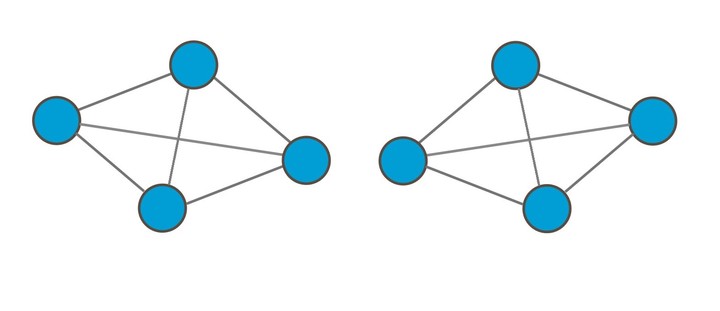Resource management and joint-planning in fragmented societies
 A fragmented social network
A fragmented social networkAbstract
Does the division of a society into identity groups increase the risk of unsustainable resource use? This study considers the theory that diversity leads to degradation by preventing joint-planning across a community of resource users. A cooperative game theory model is used to derive conditions that should make this problem appear. When resource users can plan extraction choices together, sufficient uncertainty about the value of a shared resource (“environmental uncertainty”) will incentivize them to stably make decisions in as large a group as possible. However, that is only true when players are also pessimistic about the behavior of community members not directly involved in joint planning with themselves. If those conditions are met, the probability that a community will deplete their shared resource rises as they fragment into more and more identity groups that do not make decisions together. In sum, this study demonstrates that a combination of pessimism about the behavior of non-coalition members and sufficient environmental uncertainty give rise to a negative effect of social diversity. Among other things, these findings may help explain the mixed effectiveness of some conservation policies, and improve our understanding of how events that prime inter-group tensions can have downstream sustainability consequences.